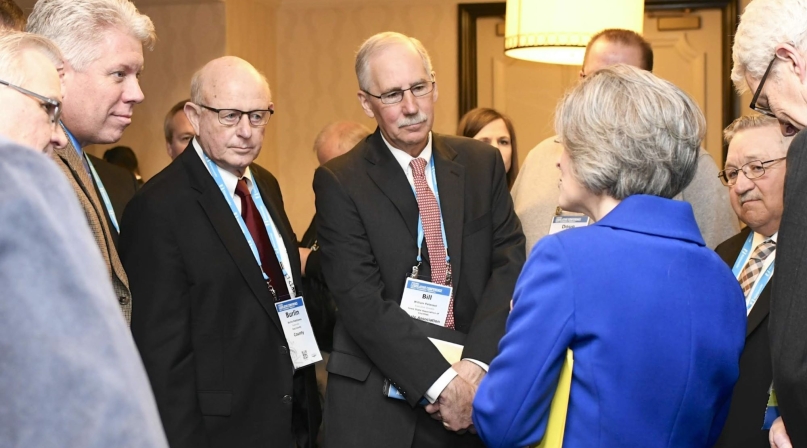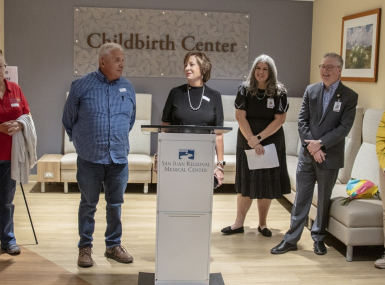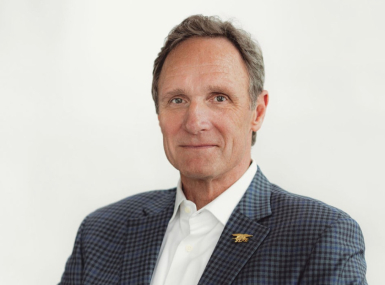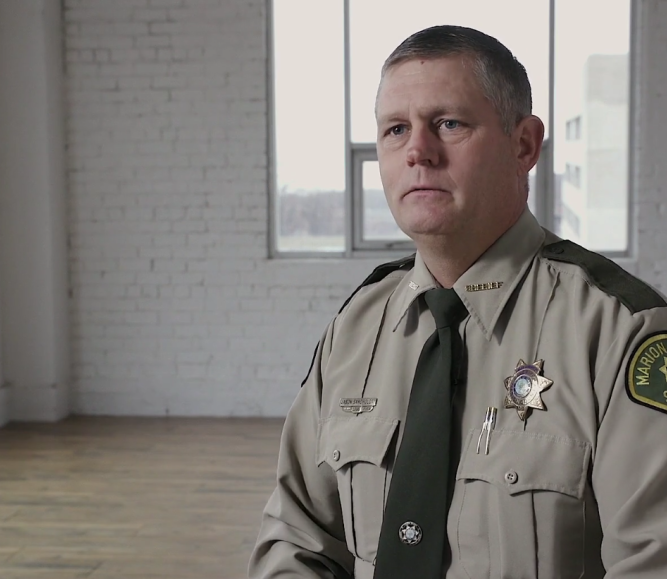After 45 years, Bill Peterson prepares to retire from Iowa state association

Key Takeaways
Little, if any, of Bill Peterson’s graduate coursework covered county government, with most of academia enamored with cities. But that didn’t stop him from learning on the job over the next 45 years at the Iowa State Association of Counties, a tenure that culminated with 29 years as executive director. Peterson retires Aug. 5.
Not only did he learn the ropes with the state’s 99 counties, he also developed the association into a finely tuned machine that balances the needs of different county constituencies and enriches the experiences of members like Joan McCalmant, a former Linn County recorder who served as the association’s president.
“It was one of the easiest things I’ve ever done because of the work Bill and his staff did to prepare the executive committee,” she said. “He hires really good people and then enables them to be the best that they can be. He does the same for elected officials.”
Employment matters brought Peterson to the state association — ISAC — in 1979, fresh out of graduate school at the University of Iowa, following four years in the Air Force.
He said ISAC was the only organization to offer him a job under a federal Intergovernmental Personnel Act grant, helping counties navigate the collective bargaining law. He also spent those first years figuring out the responsibilities and nature of county government.
“I had to work pretty hard to get to understand what they were talking about and what they were trying to resolve and help them understand what they can do,” Peterson said.
One of those challenges was navigating policy set by county supervisors versus the personnel hired by independently elected officers who have more autonomy in their office operations.
“It was a good way to understand a lot of the grassroots of what was happening at the county level from the bottom up, instead of the top down. It also got me engaged in legislative activity,” Peterson said.
He later managed the association’s group health insurance pool and served as deputy director, starting in 1988 before taking charge in 1995.
“I always felt like I had the administrative functions covered and we began to offer more services in administering programs for counties, helping counties create activities that benefited them,” Peterson said.
He also dove deeper into legislative work, combating tax limitations, getting the state to help pay for the cost of mental health and disability services and helping counties navigate recordkeeping and confidentiality with regards to health insurance.
The latter begat what became Iowa Counties Technology Services. ISAC also provided technical assistance to the Iowa County Engineers Association, Iowa County Treasurers and the Iowa County Recorders Association.
“We helped them get off the ground in terms of hiring the right people, but they’re all managed by separate boards.”
Now ISAC has 16 affiliates, with six selected affiliates and 10 appointed affiliates that serve on the Board of Directors. Those varied constituencies can make the ISAC staff’s job challenging, McCalmant acknowledges.
“When you have recorders, supervisors, sheriffs, clerks and more all operating from their different backgrounds and their agendas, it can be a little harder in terms of continuity, but he was very good at walking that thin line between affiliates [and] keeping people happy with different legislation could divide the membership along affiliate lines.”
Over his years of service, Peterson developed close friendships with his colleagues, particularly other state association directors. He has been particularly close with Wisconsin Counties Association CEO Mark O’Connell, New York State Association of Counties Executive Director Steve Acquario and the late Idaho Association of Counties Executive Director Dan Chadwick.
O’Connell holds Peterson up as a paragon of county service.
“All of us in county government should strive to emulate the qualities and attributes that Bill exhibits daily,” O’Connell said. “On a scale of zero to 10, his emotional meter goes from 4.5 to 5.5, but never goes outside of that.
“That’s incredibly important as a leader, because you don’t have the luxury of having a ‘bad day’ when your staff looks to you. He’s firm and demanding but unbelievably fair as a boss, and outside of the office, he understands the politics, but doesn’t get involved in the politics.”
Peterson identifies the shifting priorities and focus of each of the major political parties as a challenge in the government relations field, but said outside influence in state policy and preemption of local control has been particularly challenging to combat.
“If you’re an industry and you want to do business in Iowa, would you want to deal with 99 entities or 900 municipalities? You want to eliminate the decision-making authority of those entities, so you’re operating under one set of rules,” he said.
“A citizen pointed out to me that [we are] looking at this as the loss of the county governments’ ability to have local control, but what we really ought to be talking about is the loss of individual citizens having the ability to control decisions at their local level if the county is limited in its ability to make decisions. County government is not just an essential geographic area, but it’s the people within that geographic area that are suddenly impacted, because they can’t make decisions that might make sense for them.”
Peterson made enrichment and professional development a focus for members, but also reached out personally to encourage Iowa county officials to seek leadership roles on the state and national levels.
“Bill sees the potential in people and does whatever he can to help them fulfill that potential,” said Grant Veeder, Black Hawk County’s auditor and an ISAC Board of Directors member for most of Peterson’s tenure. “He is always looking ahead with the future of the association in mind, looking for the next thing that we need to focus on.”
“He has a great sense of humor and doesn’t mind teasing people, but he’s incredibly thoughtful and meticulous.”
Outside of ISAC, Peterson has found himself coaching youth club soccer, both for his son Rob’s teams in the ’80s and ’90s and his granddaughter’s teams in recent years.
His diligent attendance at NACo conferences has prevented him from regularly participating in Register’s Annual Great Bicycle Ride Across Iowa, but he plans to spend more time on his bike once he is succeeded as executive director by Andrea N. J. Woodard, director of Regional Community Integration at the Greater Des Moines Partnership. He averages 4,000 miles of biking per year, and takes advantage of local rail trails and gravel roads. He also plans to read a 50-volume collection of world literature, great speeches and historical documents compiled as the Harvard Classics.
O’Connell said that although Peterson’s low-key personality would prefer a subdued exit, his record disqualifies him from that privilege.
“When you contribute 40-plus years of your life to an association, you have given up the ability to go all quietly,” O’Connell said. Peterson “has to accept and withstand all of the ‘thank-yous’ for his work over the years.”
Related News

Now I know I can adapt my communication style
San Juan County, N.M. Commissioner Terri Fortner spent her career working with people one-on-one, but she overcame hangups about online communication when the pandemic forced her onto video calls when she first took office.

County service meets a veteran’s need for purpose in Spotsylvania County, Virginia
After Drew Mullins transitioned from a high-performance lifestyle in the military, he found the environment and purpose he sought when he took office in his county.
Now I know that solid waste is complicated
Custer County, Idaho Commissioner Will Naillon says solid waste removal is "one of the things that people often take for granted until it’s their job to make sure it happens... that’s the story of being a county commissioner."
County News
Iowa videos make case for mental health funding

